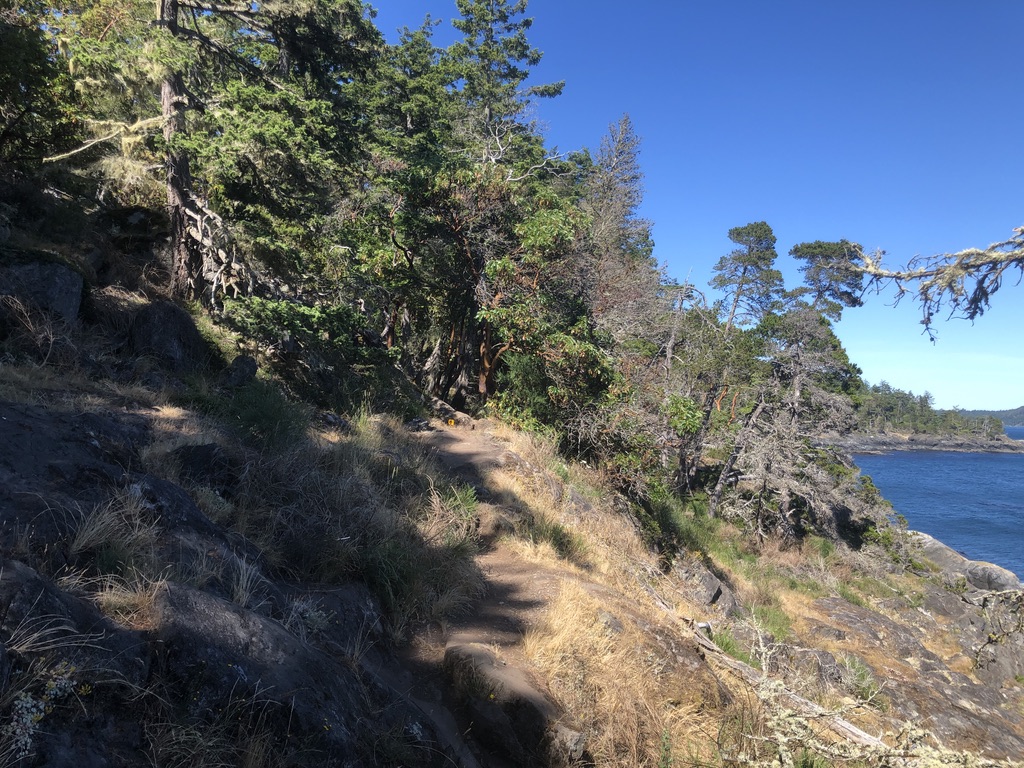Just perusing through some of the stories of the Desert Fathers and found this little anecdote. “Abba Joseph asked Abba Pastor, ‘Tell me how I can become a monk.’ The elder replied, ‘If you want to have rest here in this life and also in the next, in every conflict with another say: “Who am I?” and so judge no one.’” That’s probably good advice before I go on Twitter.
Share:

Yesterday we were walking an incredible cliff top trail in East Sooke Park, in Scia’new territory on Vancouver Island. The Coast Trail there is rugged along the Juan de Fuca side of the park and although it is well travelled, there are sections across bare rock cliff top when the path is all but invisible. It requires a deeper kind of seeing to discern where the path is, especially if you follow what looks to be an obvious route which can take you to some dangerous places. As an experienced trail walker, I find myself in moments like this looking …
Share:

Slack tide in the Salish Sea. These are the Olympic Mountains across the waters of the Juan de Fuca Strait, the body of water that links in inland parts of the Salish Sea to the open Pacific Ocean. So much water flows through this passage twice a day with the ebb and flow of the tides, that the Strait takes on the quality of a slow river, flowing in two directions, in and out, two great long breaths a day, taking in cold North Pacific water, and exhaling the fresh water from the mountains and snowpacks of the Coast and …
Share:

Image by Ken Favrholdt from this article he wrote on the history of the Kamloops Indian Residential School This has not been an easy thing to confront about Canada’s history, that this country was founded upon acts of genocide against indigenous peoples. In 2015 the TRC was really the first official body to declare that Canada’s colonial policies amounted to cultural genocide, and four years later the National Inquiry on Missing and Murdered Indigenous Women and Children came out and finally said it: …the information and testimonies collected by the National Inquiry provide seriousreasons to believe that Canada’s past and …
Share:

I was reading a facebook thread today where someone posted about changing the name of British Columbia to something else, something indigenous. And one of the responses was “no. too much change, too fast.” And that got me thinking. The process of changing the name of a place does indeed take awhile, but the act is instantaneous. One minute you are living in the Northwest territories, and the next minute you’re living in Nunavut. One minute you’re living in Upper Canada, and the next minute you’re living in Ontario. One minute you’re living in the colony of Newfoundland, and the …

